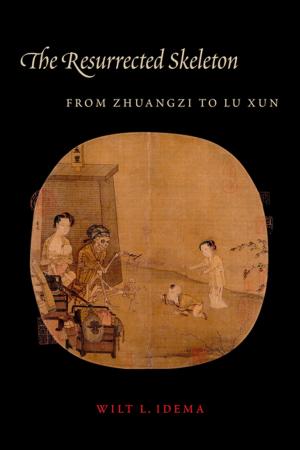| Author: | Sok-pom Kim | ISBN: | 9780231526722 |
| Publisher: | Columbia University Press | Publication: | September 29, 2010 |
| Imprint: | Columbia University Press | Language: | English |
| Author: | Sok-pom Kim |
| ISBN: | 9780231526722 |
| Publisher: | Columbia University Press |
| Publication: | September 29, 2010 |
| Imprint: | Columbia University Press |
| Language: | English |
The Curious Tale of Mandogi's Ghost incorporates Korean folk tales, ghost stories, and myth into a phenomenal depiction of epic tragedy. Written by a zainichi, a permanent resident of Japan who is not of Japanese ancestry, the novel tells the story of Mandogi, a young priest living on the island of Cheju-do. Mandogi becomes unwittingly involved in the Four-Three Incident of 1948, in which the South Korean government brutally suppressed an armed peasant uprising and purged Cheju-do of communist sympathizers. Although Mandogi is sentenced to death for his part in the riot, he survives (in a sense) to take revenge on his enemies and fully commit himself to the resistance.
Mandogi's indeterminate, shapeshifting character is emblematic of Japanese colonialism's outsized impact on both ruler and ruled. A central work of postwar Japanese fiction, The Curious Tale of Mandogi's Ghost relates the trauma of a long-forgotten history and its indelible imprint on Japanese and Korean memory.
The Curious Tale of Mandogi's Ghost incorporates Korean folk tales, ghost stories, and myth into a phenomenal depiction of epic tragedy. Written by a zainichi, a permanent resident of Japan who is not of Japanese ancestry, the novel tells the story of Mandogi, a young priest living on the island of Cheju-do. Mandogi becomes unwittingly involved in the Four-Three Incident of 1948, in which the South Korean government brutally suppressed an armed peasant uprising and purged Cheju-do of communist sympathizers. Although Mandogi is sentenced to death for his part in the riot, he survives (in a sense) to take revenge on his enemies and fully commit himself to the resistance.
Mandogi's indeterminate, shapeshifting character is emblematic of Japanese colonialism's outsized impact on both ruler and ruled. A central work of postwar Japanese fiction, The Curious Tale of Mandogi's Ghost relates the trauma of a long-forgotten history and its indelible imprint on Japanese and Korean memory.















